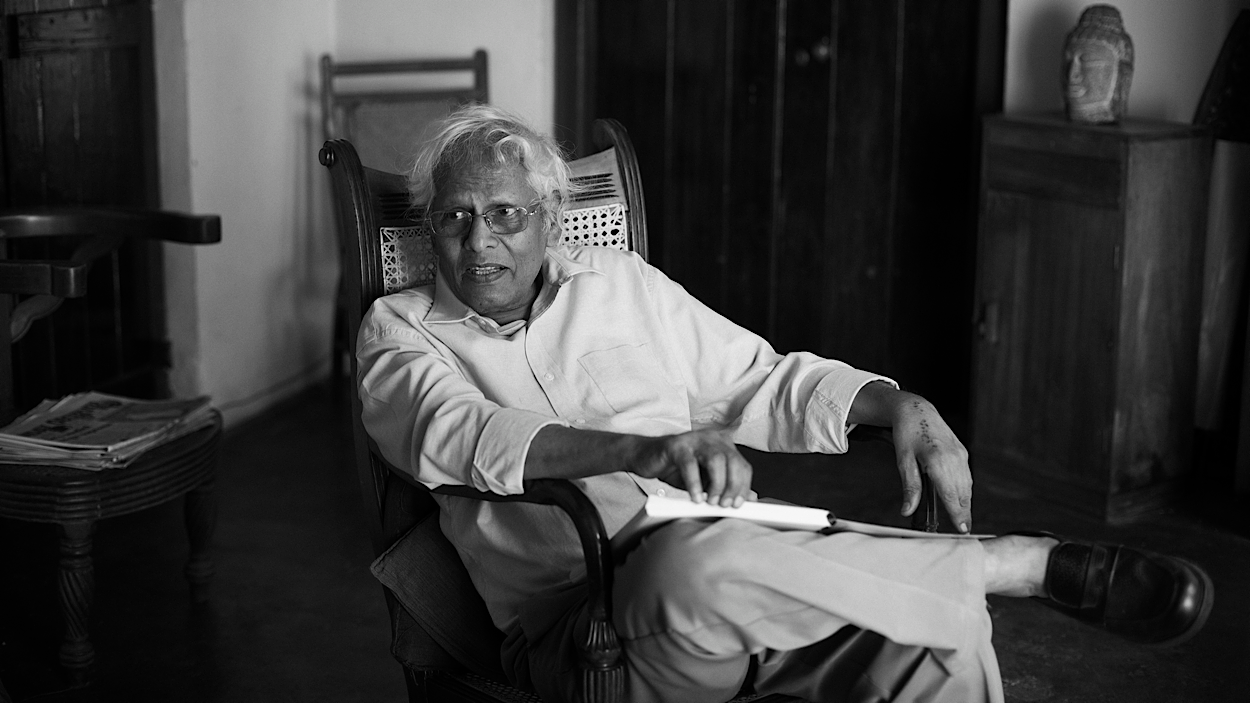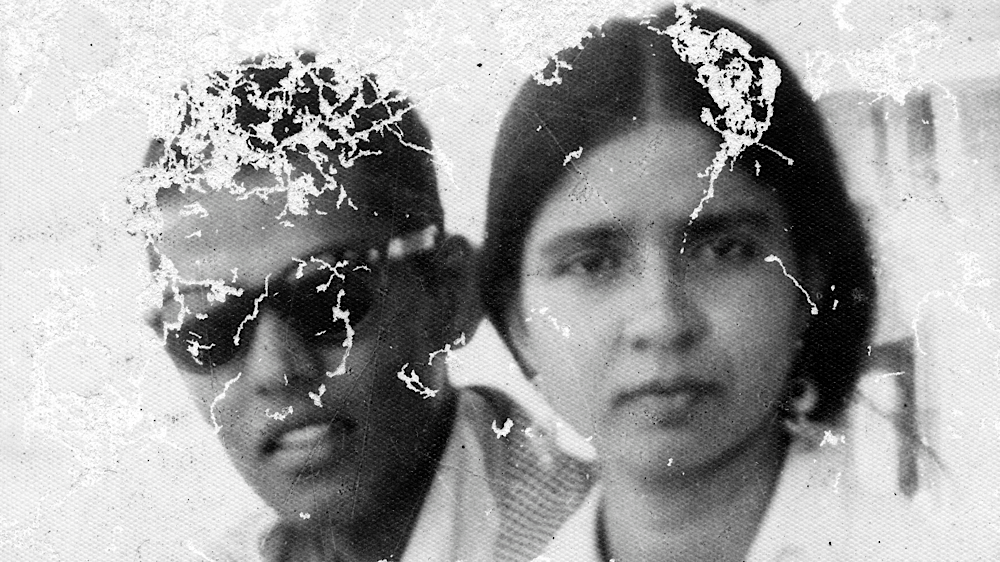

Transcript and translations
Language
Subjects discussed
I made you the other
So we are coming with our slates and with our books through the village. We don’t take roads. We come on the road and then we jump into someone’s property and then cross. Then jump through the…we used to call pottu poorruthal. Pottu poorruthal means we used to creep under the fence, we don’t jump over the fence. We make a hole in someone else’s fence and go, like dogs. We creep. That is called pottu poorruthal.
It was a funny thing we all go…And when we were in school the master would call the boys and say, “Adey, come let me see”. The village master. And he would look at our knees. If you had red earth he will say you were, “Adey, you are being pottu poorruthal” and he would give you a good thrashing because we were not supposed to go through another person’s property. “Walk on the road.” But we used to do pottu poorruthal — because short cut — otherwise you had to go a long way, no?
So we used to come back and I used to come back with a boy called David. So we came to a point where the road turned: one went left and one went right. The right one took me to our areas, the left one took me to his areas.
So one day I wanted to meet David. David is a good boy and a good friend of mine. I wanted to go with him and see where he lives. So I said, “David, can I come on this road?” Because the road ends up in my area. And I said, “David can I come?” And he said, “Come, come, come.” But when we came, I saw he had a lovely little house with an iron gate, a small gate. He left me standing there. He ran, he opened the gate and disappeared into the house. With the gnarled, old poovarasu trees, you know poovarasu? All this and on that men are seated and repairing their nets. Having the thread in the hand and they were doing on the thigh like that…
So I was wondering…this is a new thing for me… I’ve never seen this. Then I went and told my mother. My mother said, “Eh, why did you go to that side?”
That was the first time I knew that there was an “other” side.
Later on I was very sad because I was going to lose a friend. Now David and I were good friends, we walked together, we ate mangoes together. We ate guavas…on the way we plucked guavas, we plucked wood apples. I said, “what has happened to us?” This Other has come to me at that time. But having come to the south and lived here, they made us the Other. And now I say “I am the Other. I made you the Other, and I have become the Other, here”. Because the Sinhalese made us the Other. I don’t know why they made us the Other.


Comments
Leave a comment